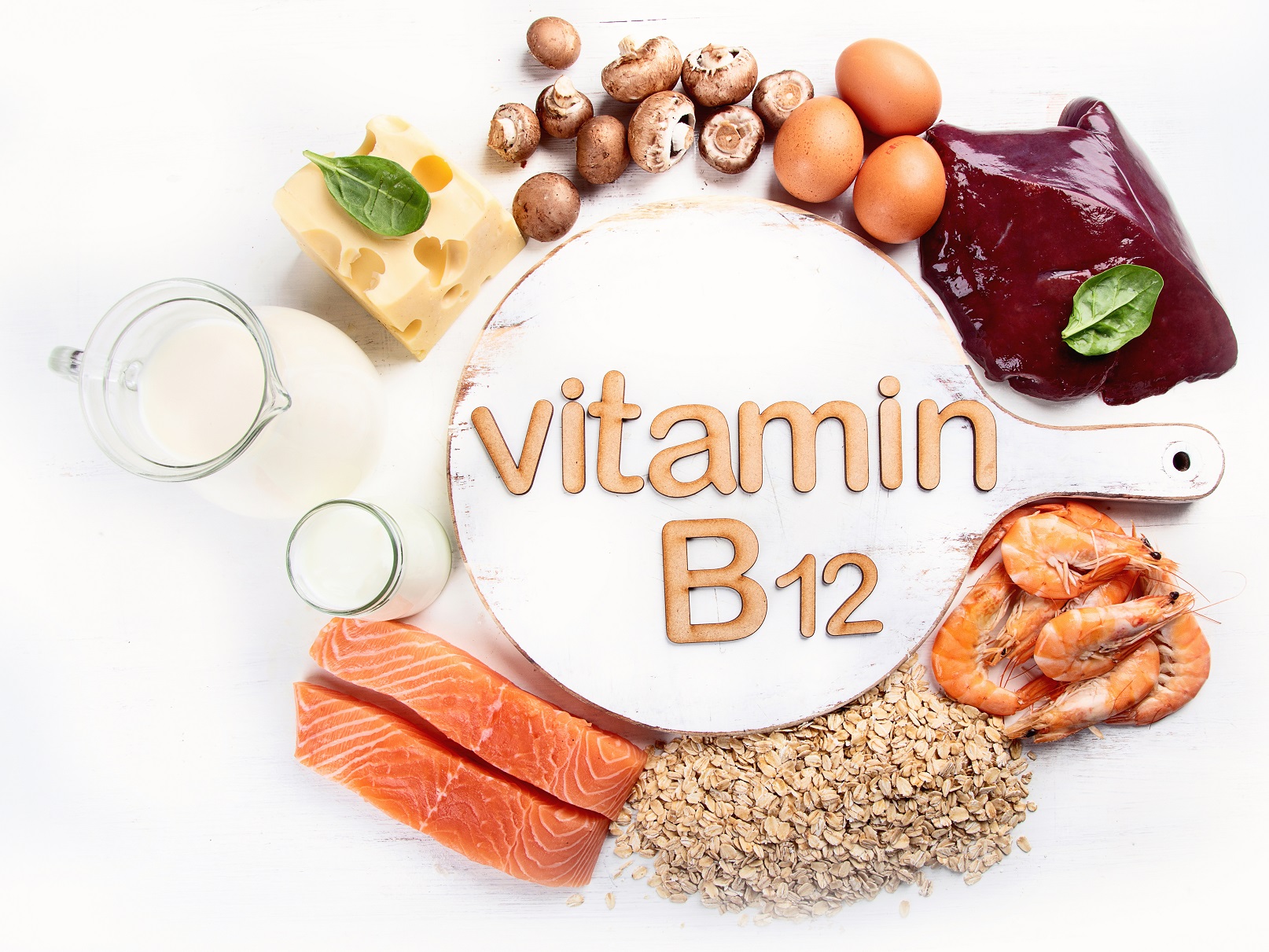Vitamin B12: Why You Should Care Even if You Eat Meat

Being aware of your specific genes can help you make more informed decisions about the foods and exercises that are right (or wrong!) for your body—all of which can help prevent health problems later down the road.*
Written by: Jamie September 6, 2019
What is Vitamin B12?
Vitamin B12, or cobalamin, is an essential, water-soluble micronutrient required by the human body to stay healthy. It helps red blood cells, nerves, and your DNA function properly. A deficiency can lead to conditions such as low energy, anemia, neurological damage like dementia, and cardiovascular disease[1].
How do I get Vitamin B12?
Your body doesn’t make B12, so it must come from the food you eat or vitamin supplements.
The following foods are good sources of B12:
- Beef, liver, and clams—some of the best sources of vitamin B12!
- Fish, meat, poultry, eggs, and dairy products
- Some breakfast cereals, nutritional yeasts, and other foods are fortified with Vitamin B12
How do genes play a role?
There are currently nineteen known genes associated with B12; five of those genes are specifically associated with its regulation (FUT2, FUT6, MMACHC, TCN1 and TCN2)[2].
The gene FUT2 is one of the most studied for its effect on B12 levels. It can contribute to high, normal, or low levels of B12.
- If you have the A; A rs602662 variant of FUT2 gene, it can lower your B12 serum levels, you might need to ingest more to stay at a healthy level [3].
- If you have the G; G rs602662 variant of FUT2 gene, your B12 serum levels may be higher, this is very good news if you don’t eat meat! [3].
- Supplementing might not be advised if you have the gene that can make it higher. It can be dangerous taking vitamin supplements when your body doesn’t need them. If you are a smoker, for example, this is especially important as research has shown a link between high doses of B12 and increased risks of lung cancer[4].
What can you do about it?
- Review your genetic predispositions. If you have not done testing, get your genes tested with Secret Sequence!
- Eat foods high in B12 to get your recommended daily amounts.
- If you are a vegan or vegetarian, elderly, or have a health condition known to affect B12, it is particularly important to mindful of your B12 levels.
- Be aware of the symptoms of Vitamin B12 deficiency, and talk to your doctor if you have any concerns—and remember to discuss if you have genes that can affect your levels!
What comes next?
New research on the topic is being done all the time. You have the ability to learn more about your DNA, so why wouldn’t you want to learn what changes can make you a healthier you?
One more important reminder: you need to be in control of who you share that information with. Secret Sequence will never sell your data—we never even ask for your name! Safely learn more about yourself and your health: order our Nutrition report today to learn more about your body’s vitamin responses!
*Disclaimer: All information, content, and material of this website is for information purposes only and are not intended to serve as a substitute for the consultation, diagnosis, and/or medical treatment of a qualified physician or healthcare provider.
References:
[1] Spence J.D. , Stampfer M.J. (2011) Understanding the complexity of homocysteine lowering with vitamins: the potential role of subgroup analyses. JAMA , 306, 2610–2611
[2] Surendran, S., Adaikalakoteswari, A., Saravanan, P., Shatwaan, I. A., Lovegrove, J. A., & Vimaleswaran, K. S. (2018). An update on vitamin B12-related gene polymorphisms and B12 status. Genes & nutrition, 13, 2. doi:10.1186/s12263-018-0591-9
[3] https://www.snpedia.com/index.php/Rs602662
[4] http://james.multimedia-newsroom.com/index.php/2017/08/22/study-clear-link-between-heavy-vitamin-b-intake-and-lung-cancer/
